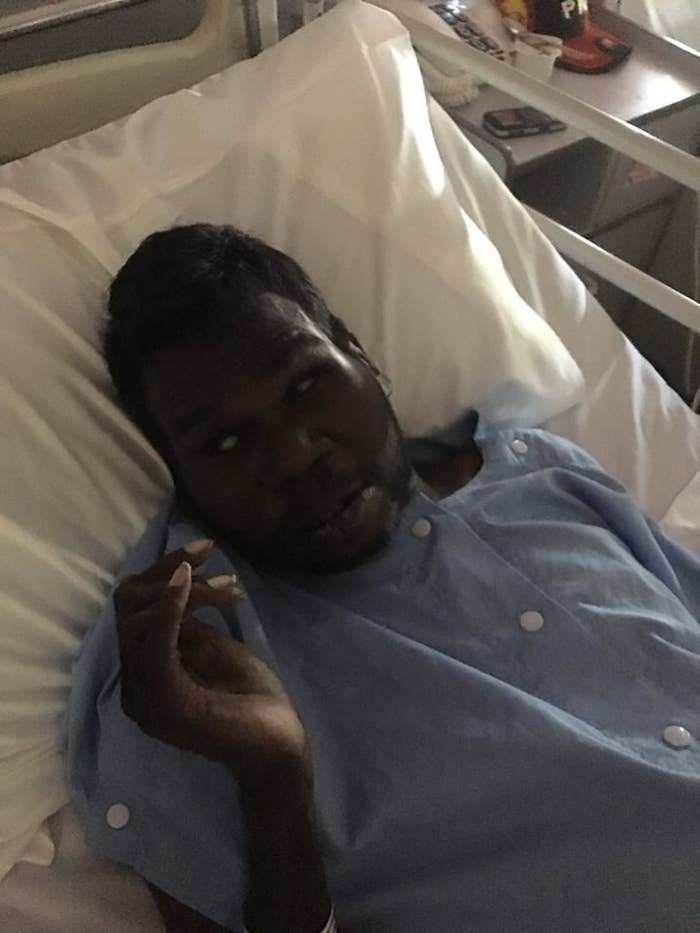Gurrumul Yunupingu, Australia's most famous Indigenous singer, wants a formal apology from the Royal Darwin Hospital after being left to bleed internally for 15 hours last week.

Yunupingu, who has battled with Hepatitis B since he was a child, was admitted to Royal Darwin Hospital last week due to problems with his liver disease.

Those allegations have been refuted by the NT minister for health John Elferink. He refused requests for an investigation into the incident and controversially said that the claims of racial profiling were a publicity stunt to sell more albums.
The views of Elferink put him at odds with the federal minister for Indigenous affairs Nigel Scullion who has requested a report into the incident.
"We need to ensure he was treated in the way that everyone else would be treated," Scullion told ABC Radio last week.
Grose is skeptical about the report, telling BuzzFeed News that he wrote to Scullion imploring him to speak with people independent of the hospital.
"I'm assuming that the Indigenous affairs minister wants a report from the hospital, which is essentially getting a report from the people who said that there was nothing wrong," Grose says.
"I had sent a message to senator Scullion saying in your report please talk to Dr. Lawton, who is Gurrumul's doctor, and Michelle Dowden, his private nurse, who has helped him navigate the health system for the past 5-6 years".
Grose also says that Elferink has asked for a private meeting with Yunupingu, but the singer has declined the invitation.
Yunupingu is now waiting for the findings of an investigation by the Health Complaints Commission, an independent body that deals with complaints about health service providers.
"Because no-one knew who Gurrumul was, what you've seen is a really clear picture of what happens to the everyday ordinary punter off the street that goes into that system and has some assumptions made about them," Grose says.
